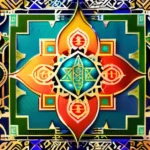Explore the Islamic belief of Qiyamah, its significance, and what it entails for Muslims.
Judgment Day, also known as Qiyamah in Islam, is a fundamental concept that holds great importance for Muslims. This article delves into the meaning, significance, and expectations surrounding Judgment Day, providing readers with a deeper understanding of this crucial belief.
The Concept of Qiyamah
The concept of Qiyamah, or Judgment Day, holds a profound significance in Islamic beliefs. Imagine a grand stage where every soul’s actions are unveiled; this is the essence of Qiyamah. In the Qur’an, it’s described as the day when all humans will stand before Allah for judgment based on their deeds. How does one prepare for such an event? Is it not like preparing for an exam that determines your entire future?
According to Islamic teachings, Qiyamah is not just a single event but a series of stages leading up to the final reckoning. It is often compared to the first day of school when you learn the rules and procedures, only this time it’s about the ultimate accountability for one’s actions. Muslims are encouraged to remember that every moment matters, as they could be the last action before their encounter with Allah on Qiyamah.
One intriguing aspect is the idea that the events leading up to Judgment Day will unfold in a manner that leaves no doubt of its reality. Are we not often warned about signs and changes happening around us, hinting at something bigger? The concept of Rajul al-Qiyamah, or the Messenger of Qiyamah, is also significant; he is believed to appear as a sign of these final times.
Reflect on your life choices now: do you see them leading towards goodness and righteousness? Remember, every act, no matter how small, will be weighed in the balance. The significance of Tawbah, or repentance, becomes even more compelling as one prepares for this ultimate day. Can we truly turn back time to make amends, or is it a call for constant vigilance and righteous living?
Ultimately, understanding Qiyamah involves more than just reading about it; it’s an internal journey of self-reflection and continuous improvement. Are you ready to face the ultimate test? The road to Judgment Day might be long, but every step is crucial in shaping your final destination.
The Signs of Qiyamah
The signs of Qiyamah, as prophesied by the Prophet Muhammad (PBUH), are like a compass guiding believers towards the ultimate horizon. Have you ever wondered about the clear warning of earthquakes that will shake the earth, causing chaos and fear among people? According to Hadith, these tremors are one of the significant indicators signaling the approach of Judgment Day (Qiyamah). Imagine if every quake was a whisper from the heavens, reminding us of our fleeting existence on this earthly plane.
Other signs include celestial phenomena. The sun and moon will be darkened, not by natural causes but as divine omens signaling the coming change. Think about it; how many times have you looked up at a clear night sky, wondering if those stars might hold secrets of our future? These events are more than mere cosmic occurrences—they are messengers from beyond, whispering that the time is drawing near.
Then there’s the emergence of false prophets. In a world already grappling with misinformation and fake news, imagine the confusion when charismatic figures rise claiming to bring salvation or truth. These deceptions will test the faith of many, yet true believers will recognize them for the frauds they are. It’s like navigating through a foggy landscape; only those who have firm guidance can find their way.
The disappearance of the sun from the sky during the day and its appearance at night is another striking sign. This phenomenon, described in Hadith, could be seen as nature itself rebelling against the usual order, urging us to look beyond our daily routines towards eternal truths. It’s a reminder that even the most basic natural laws are subject to divine will.
And what of cattle, those often overlooked beings? They too will foretell the day when their roles in human life might shift dramatically. In Hadith, it is mentioned that cattle will speak on Judgment Day, each one recounting its part in man’s story. This might seem far-fetched but consider how every creature has a purpose; perhaps even the seemingly insignificant moments of their lives are recorded and significant.
These signs, when they come to pass, will be like a mosaic, piecing together a picture of the end times. But for believers, these events are not just warnings; they are calls to action—reminders to strive in goodness, seek knowledge, and live with integrity every day, because the time we spend on Earth is precious indeed.
The Role of Good Deeds on Judgment Day
The role of good deeds on Judgment Day is akin to planting seeds that will yield a bountiful harvest in the afterlife. As Muslims, we believe every action, whether it be as simple as smiling at someone or helping an elderly neighbor, carries a weight that will be measured and weighed on the Day of Resurrection. How many good deeds have you performed today? Can you recall even one instance where you helped another person without expecting anything in return?
In the Quran, God speaks about these deeds with profound significance. For example, in Surah Al-Hajj, verse 77, it is stated, “And He it is who made good and bad deeds distinct for you, that they may take heed.” This verse highlights the importance of distinguishing between good and bad actions, suggesting that our lives are a balance of choices we make. How will your life’s scale tip on Judgment Day?
Imam Ali (peace be upon him) once said, “Your actions, O son of Adam, are as you have seen them to be.” This metaphor underscores the idea that every deed is like a mirror reflecting back at us our true selves. How will this reflection look when we stand before God? Our deeds, good or bad, will not just be remembered but will come alive on that day.
It’s not merely about performing good actions; it’s also about the intention behind them. Many acts of kindness can be performed with the wrong intentions, leading to their worth being diminished. But sincere prayers and charitable deeds with pure intentions are what truly matter. Have you ever wondered how many times your intentions have swayed the value of your actions?
The evaluation process on Judgment Day is not just about counting good deeds but also understanding their impact. A small act of kindness, like giving a cup of water to someone in need, can be more significant than large-scale charity if done with true sincerity. What small acts have you performed that could make a profound difference?
Remember, the journey toward goodness is continuous. Every day offers new opportunities to perform good deeds and earn God’s pleasure. The Day of Resurrection is not just an event in the future; it’s a reminder of our constant accountability for every moment we live.
The Day of Resurrection
The Day of Resurrection, also known as Qiyamah, looms like an eternal horizon in the minds and hearts of Muslims. It is the final act in a cosmic drama that spans creation itself, where every soul will be judged based on their deeds and intentions. Imagine standing before a judge, not just any judge, but the supreme judge, God Almighty. How do you prepare for such an event?
On this day, every individual will face a moment of truth, where their lives are laid bare. The events leading up to Qiyamah are vividly described in Islamic teachings: the earth and heavens shaking with tremors so powerful that mountains crumble into dust, like candles flickering out. The sun will roll back as if it were a new day, revealing the innermost secrets of each heart.
The righteous believers, those who have followed the path of righteousness, will be guided to Paradise, symbolized by lush gardens and rivers. Their faces will shine like moons, basking in eternal light. But for the unrighteous, the fate is grim; they will descend into a fiery hell, where their eyes will be blindfolded, unable to see the light of justice or mercy.
The key lies not just in knowing about Qiyamah but in truly understanding its significance. It serves as a constant reminder of accountability and the importance of living a virtuous life. Every good deed, every act of kindness, is like casting a stone into a pond; it creates ripples that affect others and our own spiritual well-being.
As we approach this monumental day, let us reflect on the lessons of history, where countless prophets and righteous souls faced their judgement with faith and hope. Could you face your own judgement without fear or hesitation? The Day of Resurrection is not just a date in the future; it is a present reality that shapes our every action today.
By understanding and preparing for Qiyamah, we can find solace in knowing that our actions have meaning and purpose. It is a reminder to live each moment with intention, compassion, and dedication to God’s path. After all, the true measure of one’s life is not just its duration but the quality of choices made along the way.
Preparing for Judgment Day
How many times have you wondered, ‘Am I truly ready for that day?’ The question lingers like a silent shadow in every Muslim’s heart. The Day of Judgment (Qiyamah) is more than just an abstract concept; it’s a call to action and reflection. In Islam, Qiyamah symbolizes the ultimate reckoning, where every soul will be judged based on their deeds.
Imagine yourself standing before Allah, surrounded by the consequences of your choices. Would you feel confident or apprehensive? Preparing for this day is not just about memorizing verses; it’s about cultivating a heart that seeks guidance and righteousness. The journey to spiritual readiness involves understanding what needs to be done and how one should approach these tasks.
Firstly, strengthen your faith. Faith in Allah is the foundation of every good deed. Reflect on why you believe in Him and what that belief means for your daily life. Regular remembrance (dhikr) can help keep faith alive, making it a part of your routine rather than just an occasional thought.
Secondly, practice sincerity. Islam emphasizes the importance of sincerity (ikhlas). Every action should be done solely for the pleasure of Allah, not for show or to gain approval. This means being honest in your intentions and actions, even when no one is watching.
Thirdly, seek knowledge. Knowledge empowers you to make informed decisions. Read about Islamic teachings, engage with scholars, and seek understanding through the guidance of the Quran and Sunnah. The more you know, the better equipped you are to navigate life’s challenges ethically and morally.
Finally, do good deeds. Actions speak louder than words in Islam. Engage in acts of kindness, charity, and worship regularly. Remember, every small act counts, and it contributes to your spiritual ledger on the Day of Judgment.
In preparing for this day, think of yourself as a ship navigating through life’s stormy seas. Each decision you make is like steering that ship towards either safety or peril. By focusing on faith, sincerity, knowledge, and deeds, you ensure that your soul steers true, guided by the light of guidance and hope.
Are you ready to face the final test? The journey begins now, with each step taken towards righteousness and submission to Allah. Let us embark on this path together, striving every day to be better prepared for that inevitable moment.
The Impact of Judgment Day on Islamic Society
The belief in Judgment Day, also known as Qiyamah, holds a profound significance for Muslims. It’s not just a future event but a constant reminder of accountability and purpose in their daily lives. How does this belief shape Islamic society? Can we truly grasp its impact on culture and values?
Imagine the world as a vast garden, where every flower represents an individual. Each bloom is unique, yet they all have one common purpose: to thrive under the nurturing sun of God’s love. Now, envision Judgment Day as the final harvest season. Here, each flower is meticulously weighed against its contributions and virtues, just as Muslims believe their deeds will be judged.
For many Muslims, the belief in Qiyamah acts like a lighthouse, guiding them through life’s storms. It instills a sense of responsibility to live ethically and morally. When we ask ourselves, ‘How do our actions reflect before God on that day?’ it challenges us to lead lives filled with compassion, honesty, and charity.
Moreover, this belief fosters unity among Muslims. Just as the diverse colors of flowers come together in a harmonious garden, so too do different communities join hands, united by their shared faith. The fear of judgment and the hope for redemption create a cohesive social fabric, where mutual support and community welfare are paramount.
Consider the role of charity, for instance. Muslims are encouraged to help those in need, not just out of pity but because every act of kindness is seen as an investment in their own future. This belief transforms everyday actions into acts of worship, embedding values like generosity and empathy deeply within society.
In essence, the belief in Judgment Day is more than a religious doctrine; it’s a blueprint for a just and compassionate society. It teaches us to live every moment with integrity and purpose, ensuring that our lives are meaningful and aligned with divine will. As we navigate through life’s challenges, this belief serves as both a moral compass and an eternal promise of accountability.
Conclusion
 In conclusion, Judgment Day serves as a reminder for Muslims to lead righteous lives, strive for good deeds, and maintain faith in Allah. By understanding the concept of Qiyamah, we can better appreciate its role in shaping Islamic beliefs and practices.
In conclusion, Judgment Day serves as a reminder for Muslims to lead righteous lives, strive for good deeds, and maintain faith in Allah. By understanding the concept of Qiyamah, we can better appreciate its role in shaping Islamic beliefs and practices.











